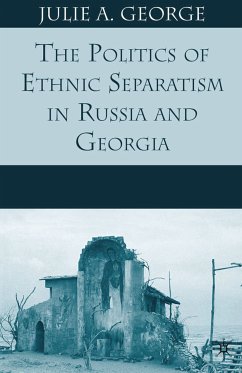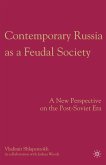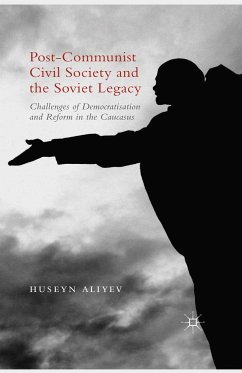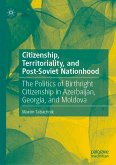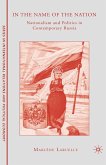Dieser Download kann aus rechtlichen Gründen nur mit Rechnungsadresse in A, B, BG, CY, CZ, D, DK, EW, E, FIN, F, GR, HR, H, IRL, I, LT, L, LR, M, NL, PL, P, R, S, SLO, SK ausgeliefert werden.
"In view of both its theoretical and empirical contributions, this book stands to make a major contribution to the existing literature on the subject. We are presented with an elegant explanation which combines several structural and agential factors to yield falsifiable hypotheses, and whichcaptures the complexity and contingency of ethnic political bargaining without sacrificing parsimony and rigor." - Douglas W Blum, Professor of Political Science, Providence College
"Julie A. George s book is an impressive work that compares the manner in which independent Russia and Georgia deal with the demands of their national minorities for greater autonomy or independence.Taking what we might call a structural approach to these cases, George explains why some of these conflicts escalated into violence, while others remained largely peaceful. These are extraordinarily complex cases, each one of them requiring a broad contextual and historical knowledge, and George provides us with plenty of both.An excellent book, it challenges many of our assumptions about ethnic mobilization and conflict resolution. George has a strong hypothesis, has garnered her evidence, and highlights what she sees as the underpinnings of violence and conciliation in ethnic conflicts." - Stephen F. Jones, Professor of Russian and Eurasian Studies, Mount Holyoke College
"George's book is a major contribution to the study of causes of ethnic separatism in formerly communist countries. Using a bargaining framework, George shows that strong and wealthy regional governments are able to use their leverage to pursue separatist strategies while mitigating the risk of open conflict with the center. At the same time, separatist activity in countries with weak central states is more likelyto lead to violence, as these states are less able to offer credible bargains to the separatist regions. Finally, she shows that clientelistic ties between center and region can help to resolve incipient separatist conflicts by ensuring that communication remains possible even as formal institutions wither away. This book is a must read for scholars seeking to understand the origins of some of the most destabilizing ethnic conflicts in the former Soviet Union." - Dmitry Gorenburg, Executive Director, American Association for the Advancement of Slavic Studies (AAASS) and Lecturer, Harvard University, Department of Government

